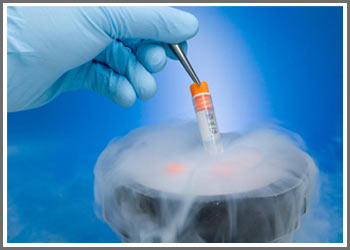ENDOCRINOLOGY SERVICES
Infertility (Male and Female)
- Intra uterine insemination (IUI)
- Assisted reproductive techniques including In Vitro Fertilization (IVF), Intra Cytoplasmic Sperm Injection (ICSI), Frozen Embryo Transfer (FET)
- Vitrification of embryos
- Oocyte donation, Sperm donation, Embryo donation
- Testicular sperm extraction (TESE), Micro TESE
- Polycystic ovarian syndrome (PCOS)
- Menstrual irregularities
- Hirsutism (Excess hair growth)
- Pubertal disorders (Delayed puberty, Premature/precocious puberty)
- Erectile dysfunction
- Hypothyroidism and Hyperthyroidism
- Pregnancy related Thyroid disorders
- Thyroid Nodules and cancer
- Ultrasonography of Thyroid
- FNAC of thyroid nodules
- Thyroid surgeries (Our surgical team includes a surgical oncologist and an otolaryngologist)
OTHER ENDOCRINE CLINICS
- Pituitary tumours (Prolactinoma, Acromegaly, Cushing’s)
- Hypopituitarism
- Diabetes Insipidus
- Hypoadrenalism (Addison’s disease)
- Hyperadrenalism (Cushing’s syndrome)
- Adrenal tumours (Benign and Malignant)
- Short stature
- Failure to grow
- Excess growth
- Obesity
- Ambiguous genitalia
- Genital abnormalities

THYROID
The thyroid gland plays a vital role in the body’s metabolism, temperature control and coordinates the functions of all cells in the body. Thyroid disorders are becoming increasingly prevalent, even more common in comparison to diabetes that affects all age groups. As per Indian statistics, 10% of adults, 11% of pregnant ladies and 1 in 2640 newborn have a low functioning thyroid hormone (hypothyroidism).
Thyroid disorders cause significant fertility problems in men and women. When uncorrected this accounts for impaired sperm function in men. Research has shown that abnormalities in thyroid function can have an adverse effect on reproductive health – before, during and after conception. This results in reduced rates of conception, increased miscarriage risk and adverse pregnancy and neonatal outcomes.
Thyroid hormones are very vital in pregnant women and newborn children. Thyroid hormone plays a vital role for brain development in the fetus, in utero and is an important factor for IQ. Research has shown an association of subnormal intelligence, autism with maternal hypothyroidism. Before the onset of fetal thyroid function, that occurs about 12 weeks of gestation; the fetus is dependent on the placental transfer of maternal thyroid hormone for normal development. Therefore, maternal hypothyroidism early in the pregnancy causes decreased availability of thyroid hormone during the initial phase of normal brain development and consequently is associated with increased rates of abortion and stillbirth, impaired neuropsychological development of fetus and congenital malformation and increase in perinatal mortality.
Congenital hypothyroidism (CH) is the one of the most common preventable cause of mental retardation.The clinical features of congenital hypothyroidism are so subtle that many newborn infants remain undiagnosed at birth and delayed diagnosis leads to the most severe outcome of CH, mental retardation, emphasizing the importance of neonatal screening. The Indian Thyroid Society currently recommends screening of all pregnant women for thyroid dysfunction.
Although the above statistics are alarming the treatment of thyroid disorders are simple, cheap, safe and effective. Treating even minor thyroid disorders like hypothyroidism considerably improves general well being, improves the chance of pregnancy, decreases the miscarriage risk, improves the health and prevents mental abnormalities in the baby.
Message A greater awareness is needed regarding the significance of preventive testing for thyroid abnormalities. Screening for thyroid dysfunction is essential at the start of pregnancy and especially when seeking fertility treatment or struggling with miscarriages. It is vital to include screening for thyroid hormones with a blood test in all newborn babies and pregnant ladies.
